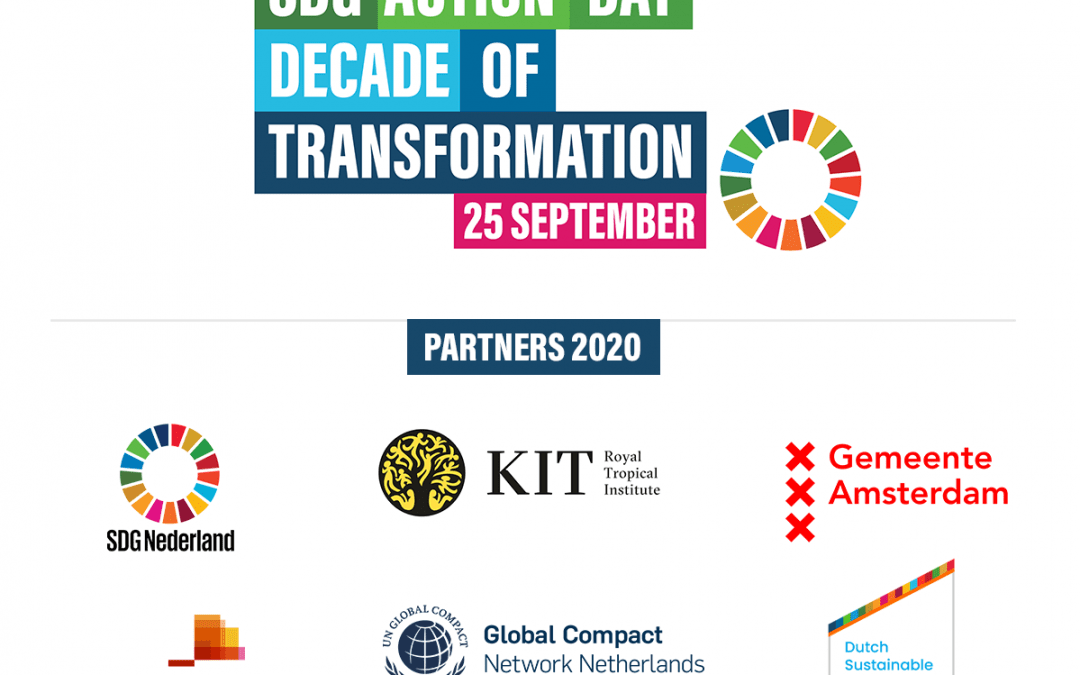Looking back on the past year
Looking back on the past year
Many of you may already be enjoying a well-deserved holiday. Or are day dreaming about a sunny beach, completing the last jobs at the office. For perhaps even more than in other years, everyone is in need of summer relaxation. This COVID-19 year brought new challenges for many; how to stay healthy together, how to deal with disappointing economic results due to the lockdowns and all the measures, how to find a new work-life balance now that these have become much more intertwined. And then to realise that we are still not there.
But perhaps, despite the fact you’re already in the holiday mood, it has not escaped your notice that sustainability is at a turning point. We are definitely doing away with the idea that sustainability is something you do on top of your business; sustainability is an integral part of your business. Sustainability is not something reserved for just a few larger companies or green front runners; it is mainstream and belongs on every company’s agenda. These are the conclusions we can draw from various legislative proposals that are quite ‘changemakers’. The legislator speaks: The European Commission presented a package of more than 2,000 pages of legislation to make Europe climate-neutral. The European Commission also presented a new strategy for sustainable finance, in order to increase private investment in sustainable projects and activities, and a new standard was presented for green bonds. We are still awaiting a proposal from the European Commission for European IMVO due diligence legislation, although there is already a Dutch bill on the table for a statutory duty of care to limit IMVO risks on the initiative of the Christian Union, GroenLinks, PvdA and SP. The European Commission is also working on extending the scope and reach of the non-financial reporting directive, which will require more companies to report on their sustainability impact. And the Corporate Governance Code Monitoring Committee has presented proposals to tighten up the relevant self-regulation, requiring companies to account for the social effects of their policies. And where the legislator does not act, we see that the courts enforce the sustainability standard, see the recent judgment in the Shell case.
Global Compact Network Netherlands sees this as public confirmation of the importance of the Ten Principles of the UN Global Compact and the Sustainable Development Goals. Principles such as recognition of international human rights, abolition of child labour and support for a preventive approach to environmental issues will thus feature more prominently on the agenda of company management. At the same time, we see that even now, without this legislation, Global Compact members demonstrate annually through their Communication on Progress how they are progressing in the areas of human rights, environment, labour and anti-corruption. The intrinsic motivation to become more sustainable is very powerful. And that is also a warning for the legislator; we must guard against sustainability degenerating into the ticking off of legal requirements as a compliance issue. The question of how to achieve optimal sustainability impact should remain at the forefront of legislators’ minds when considering new regulations.
I am proud of all the enthusiasm within our network to take full responsibility for the major global challenges. 80% of participants in the SDG Ambition programme have identified new SDGs on which they can increase their impact. A nice selection of our members is about to participate in the Target Gender Equality programme and the Climate Ambition Accelerator to sharpen their focus on gender equality and climate and to start working on it. With these concrete acceleration programmes, the Global Compact contributes directly to making business more sustainable.
There was also considerable interest from companies in learning how to improve the quality of their human rights due diligence. With the cooperation of KPMG and Shift, we were able to provide this via a webinar and two round tables.
During the compilation of the national SDG report, it emerged that more and more companies are working to incorporate the SDGs into their business. And many companies have signed the call for a sustainable coalition agreement, the initiative of SDG Netherlands, of which we are partners.
That intrinsic motivation to work for a better world can be sparked at an early age was proven by the story of Orcun Sersungur, member of the SDG Young Leaders Board during their kick-off event #BeTheChange. As the son of Turkish parents, he has experienced at first hand that society is in practice less inclusive than we would like. While he was top of the class, he was pigeon-holed into thinking that VMBO was good enough for him. He has learned to dare to speak out, because that is the only way to change. Perhaps something to think about on a distant beach or at a quiet holiday spot a little closer to home. Do you speak out when you experience injustice? Do you speak out when your peers commit misdeeds in the areas of human rights, labour and the environment? Be the change, it makes a world of difference.




